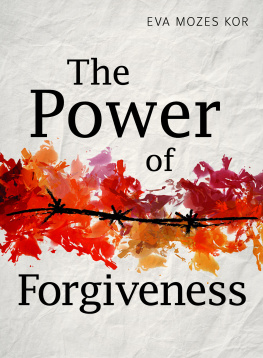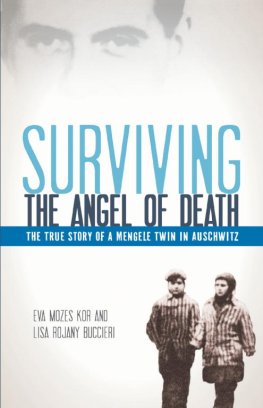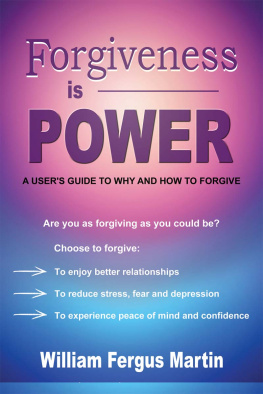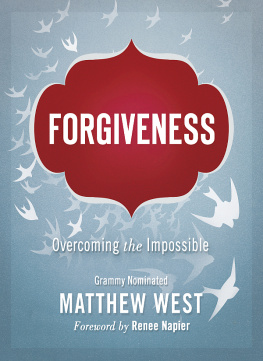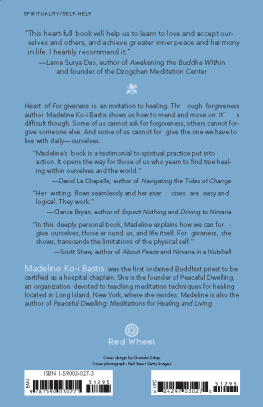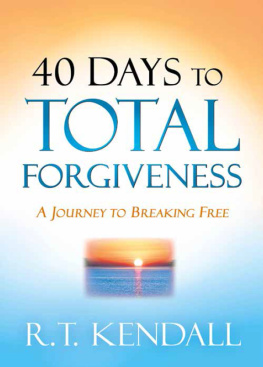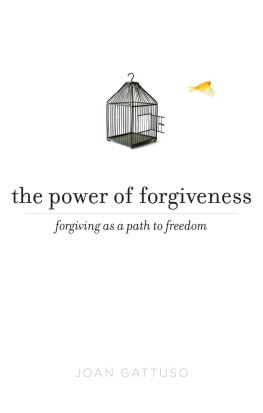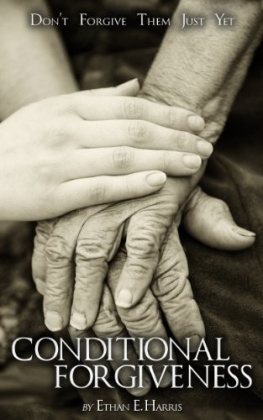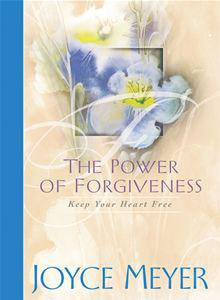Contents
Page List
Guide
The Power of Forgiveness
The
Power
of
Forgiveness
Eva Mozes Kor
Central Recovery Press (CRP) is committed to publishing exceptional materials addressing addiction treatment, recovery, and behavioral healthcare topics.
For more information, visit www.centralrecoverypress.com.
2016 Benevento Publishing
All rights reserved. Published 2021. Printed in the United States of America.
No part of this publication may be reproduced, stored in a retrieval system, or transmitted in any form or by any means, electronic, mechanical, photocopying, recording, or otherwise, without the written permission of the publisher.
Publisher: Central Recovery Press
3321 N. Buffalo Drive
Las Vegas, NV 89129
26 25 24 23 22 211 2 3 4 5
ISBN: 978-1-949481-44-0 (paper)
978-1-949481-45-7 (e-book)
Library of Congress Control Number: 2020947989
Photo of Eva Mozes Kor used courtesy of CANDLES Holocaust Museum and Education Center.
Every attempt has been made to contact copyright holders. If copyright holders have not been properly acknowledged please contact us. Central Recovery Press will be happy to rectify the omission in future printings of this book.
Publishers Note
This book contains general information about trauma, surviving abuse, and healing. The information contained herein is not medical advice. This book is not an alternative to medical advice from your doctor or other professional healthcare provider.
Our books represent the experiences and opinions of their authors only. Every effort has been made to ensure that events, institutions, and statistics presented in our books as facts are accurate and up-to-date. To protect their privacy, the names of some of the people, places, and institutions in this book may have been changed.
Cover design and interior by Sara Streifel, Think Creative Design.
Contents
Foreword
Its as simple as making a decision.
During the many conversations I had with Eva on the topic of forgiveness, she made it sound so easy. Evas idea was that forgiveness is a simple decision with huge consequencesboth positive and negative. Through forgiveness, she felt free from the anger and hurt. She felt fortunate to discover the power of forgiveness and wanted to make it available to other people. She was firm in her belief that forgiveness would heal victims, and she wanted to shout it from the mountaintops. She shared her message whenever and wherever she could. In spite of this, she was criticized for forgiving what some feel is unforgiveable, the murder of her family. Still, she believed in her cure for victimhood.
It was my privilege to spend a lot of time with Eva before her death, both personally and professionally. We traveled together locally for doctors visits and nationally to lectures and interviews. Sitting in waiting rooms or cars, we would discuss our calendars, new projects she was creating for the staff, or her train ride from the ghetto to Auschwitz. It did not matter the purpose; Eva was always working, always thinking. That is one of the things I loved most about her: she continued to find new ways to do things, to help people.
Even before these conversations with Eva, I believed in forgiveness, or at least in the idea of letting go of anger and hate. It is just too heavy and difficult to carry for extended periods of time. Like many, my husband feels the opposite and believes revenge is warranted for wrongful acts. One of the powers of Evas forgiveness was that she brought the idea to light and allowed people to have the conversation. While she wanted them to forgive, the debate of the idea was another important part of her legacy.
You can learn more about Evas story at the museum she founded, CANDLES Holocaust Museum and Education Center, located in Terre Haute, Indiana. Eva loved acronyms; CANDLES stands for Children of Auschwitz Nazi Deadly Lab Experiments Survivors. The mission is to spread hope, healing, respect, and responsibility, while shining a light on the Holocaust.
The terrible things that Eva endured give strength and real power to her forgiveness. If she could forgive, I feel strongly that anyone can. Forgiveness is Evas gift to the world. I hope youll consider it as a way to heal from any pain that you have endured. Together, we can heal the world through forgiveness, one person at a time.
Leah Hemeyer Simpson
MA Holocaust and Genocide Studies
Executive Director of CANDLES Holocaust Museum and Education Center
Prologue
I know hate. I know only too well how it feels, in all of its variations. How it spreads through ones stomachthe hateand how it increasingly steers your thoughts. And I know what its like to long for revenge.
What would happen?
Today, I can still see myself traveling through Upper Bavaria, to visit a man who worked as a camp doctor in Auschwitz, where I lost my family and my childhood. He was a colleague of Dr. Mengeles, the man who humiliated and abused me, who forced me to look death in the eyes.
Have I already mentioned that I know how hate feels? Oh, do I!
So I am driven through Rohaupten, a picturesque village in Allgu, surrounded by meadows and mountains, with a baroque church with an onion tower around which the village spreads to the edge of an alpine lake. Around two thousand people live there. And I still remember my unease. My anger (fury?) at the world and at the Germans, in particular. The word forgiveness didnt exist in my vocabulary. It wasnt even remotely in my mind. Even the idea of actually meeting a Nazi from Auschwitz was crazy.
I became more and more nervous with each kilometer.
Beforehand, I had seen all kinds of documentaries, anything I could get my hands on, and this man, Dr. Hans Mnch, was a typical Nazi. Tall, stately, as one would say. Even as an eighty-two-year-old. He looked a little like Laurence Olivier in The Marathon Man. I was afraid of him.
But there was no turning back now. Despite my sleeplessness, my scruples, despite all my reservations that the whole trip would end in tears. I had to find out about the viruses or bacteria that my sister and I had been injected with. Miriam had just died the previous year because the doctors had been defeated by her uncommon side effects. So I had to meet this former Nazi doctor.
Because I have a rule: if I agree to do something, then I follow through with it. I honor my word.
I also wanted to find out what went through this mans mind. How could he have worked in the camp; how could he live with the atrocities? How could he continue living after Auschwitz?
A nice house, I remember. Surrounded by a well-tended garden. And Dr. Mnch opened the front door with a friendly smile. And shook my hand.
I wasnt expecting that. In my mind, this man was an arrogant Nazi, who was oh so generously granting me, a poor survivor, an audiencebut he wasnt that way. In my mind, Germans were serious, no one would smile. I expected to see a monster: SS-Untersturmfhrer Hans Mnch, camp doctor in Auschwitz, Hitlers henchman in humanitys worst crime.
But he is nice

